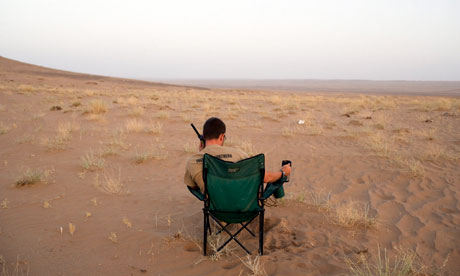PTSD 'surprisingly low' in UK troops in Iraq

The Institute of Psychiatry hasjust published the resultsfrom the first survey of post-traumatic stress disorder in UK troops serving in Iraq, and found that only around 3% of troops reported suffering from the symptoms of PTSD - lower than the incidence found in police officers or doctors working in casualty.
The incidence of PTSD is also, apparently, significantly lower than that found in US troops in a 2004 survey by the Walter Reed Army Institute of Research, which found 16-17% of troops serving in Iraq to be suffering from depression and PTSD symptoms.
Why the difference between the UK and US survey results? Simon Wessely, one of the authors of the IoP report, suggested on the Radio 4 show All In The Mind, that one factor might be the longer length of US tour - US soldiers serve 12-15 month tours, while British soldiers serve six month tours. The US also use more reserve soldiers, who are more vulnerable to mental illness and trauma. And, he suggested, the US health service may simply be less good at helping veterans cope than the NHS.
It's also worth mentioning that fighting in Iraq was far, far more severe in 2004 for US troops than it was in 2009 for UK troops.
One interesting thing that Wessely mentioned is that "nine out of ten times" the problems for which soldiers seek support from counsellors and chaplains are domestic problems. He says:
Today, with email and satellite phones, it's much easier to communicate with loved ones back home. But you can have too much of a good thing. I've listened to many soldiers talking to their families, and problems are often presented to husbands, like 'little Johnny's refusing to go to school', which he is powerless to do anything about. That is not good for people.
I have heard the same thing from Major Thomas Jarrett, a resilience counsellor in the US Army - who tells me that a lot of soldiers' emotional problems on tour come from anxieties about their home life, and a sense of powerlessness to intervene there.
Jarrett tries to teach people the Stoic idea of knowing what you can control and what you can't, and learning to accept (for the time being) that there are some things over which one's control is limited. It's the basic therapeutic technique you meet in the Serenity Prayer:
God grant me the serenity
to accept the things I cannot change;
courage to change the things I can;
and wisdom to know the difference.It's also a technique which Stephen Covey teaches in chapter one of his book, Seven Habits of Highly Effective People, in which he talks about recognizing what elements are in your 'circle of influence' (where you can genuinely influence how they turn out) and what elements are in your 'circle of concern' (you might worry about them, but there's not much you can do about them right now).
Covey writes:
Instead of reacting to or worrying about conditions over which they have little or no control, proactive people focus their time and energy on things they can control. Gaining an awareness of the areas in which we expend our energies in is a giant step in becoming proactive.
Or, as the US Army's Ultimate Leadership Manual puts it: "It is critical for leaders to remain calm under pressure and to expend energy on things they can positively influence and not worry about things they cannot affect."

